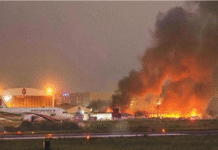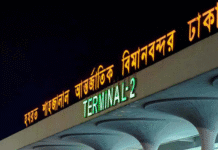Two amici curiae ,TH Khan and Rokanuddin Mahmud, on Sunday made opposing opinions on the latest amendment to the International Crimes (Tribunals) Act 1973, which provides an equal scope for appeal by both sides against the ICT verdict in the case of war crimes convict lifer Abdul Quader Mollah of Jamaat-e-Islami.
TH Khan said the latest amendment to the International Crimes (Tribunal) Act 1973 will not be applicable for Quader Mollah, while Rokanuddin Mahmud opined that the amended law could be applied in the Jamaat leader’s trial.
They gave their views before a five-member bench of the Appealed Division of the Supreme Court.
In a written statement, TH Khan said the verdict against Quader Mollah was announced on February 5 this year. Shahbagh protesters launched a movement against the verdict crying for his death penalty and the International Crimes (Tribunals) Act was amended on February 18.
The latest amendment to ICT Act 1973 provides an equal scope for appeal by both sides against the ICT verdict in the case of war crimes convict. But, as the legal process of Mollah’s trial completed before the amendment, there is no scope to apply the amended law against Quader Mollah, said Khan.
Advocate Faisal Khan, son of TH Khan, placed the written statement made by his father before the apex court.
Barrister Rokanuddin Mahmud said there is a deadline to appeal against the verdict of war crimes trial within 90 days. As the law was amended during the time framework (90 days), the amended law will be applicable for Mollah’s trial.
The Appellate Division on June 20 appointed seven amici curiae (friends of court) for legal opinion on two issues — whether the trial of war crimes fall under the purview of the international customary law, and whether the amendment to the ICT Act on February 17 can come into effect on July 14, 2009.
The seven amici curiae are: TH Khan, Mahmudul Islam, Rafique-ul Huq, M Amir-Ul Islam, Rokanuddin Mahmud, AF Hasan Ariff and Ajmalul Hossain, QC.
Source: UNBConnect










